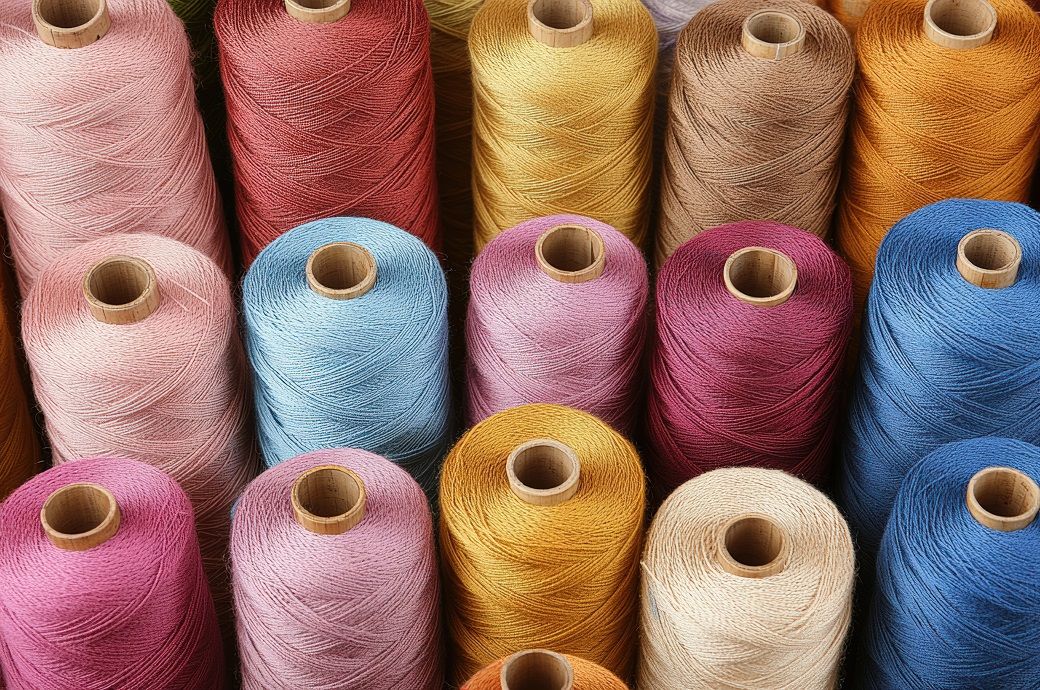
Market experts are optimistic about better demand at the beginning of the new fiscal 2025–26 in April. They said that the consumer industry and stockists may buy for the longer term as payment flow is expected to improve. Stronger fundamentals in cotton fibre may also provide direct or indirect support to India’s man-made and blended yarn markets.
PC and polyester yarn prices hovered at previous levels in the Ludhiana market. There was slow demand from the consumer industry and stockists, as they were occupied with annual closing during the final days of the current fiscal 2024–25. A trader from the Ludhiana market told Fibre2Fashion, “Buying interest further decreased among the consumer industry and stockists as they are more focused on settling their accounts and tax planning. Slow payment flow also influenced polyester and PC yarn prices in the market.”
In Ludhiana, 30 count PC combed yarn (48/52) traded at ₹208-215 (approximately $2.43-2.51) per kg (GST inclusive); 30 count PC carded yarn (65/35) at ₹192-202 (approximately $2.24-2.36) per kg; 20 recycled polyester yarn at ₹112-118 (approximately $1.31-1.38) per kg; 30 count polyester spun at ₹155-163 (approximately $1.81-1.90) per kg (GST inclusive); recycled polyester fibre (PET bottle fibre) at ₹80-82 (approximately $0.93-0.96) per kg and virgin polyester fibre at ₹101 (approximately $1.17) per kg.
Surat’s polyester yarn market also noted steadiness in prices, as buyers were absent. Different varieties of polyester yarn were traded at previous price levels. According to market sources, polyester and PC yarn demand may improve next month as payment flows are expected to increase. A revival in buying from the downstream industry would also send a positive signal.
In Surat, 30 count polyester spun yarn was traded at ₹144-145 (approximately $1.68-1.69) per kg (GST extra); 40 count poly spun yarn at ₹157-158 (approximately $1.83-1.84) per kg; 50/48 fully drawn yarn (FDY) at ₹113-114 (approximately $1.32-1.33) per kg; 75/72 FDY at ₹104-105 (approximately $1.21-1.23) per kg; and 75 bright yarn at ₹106 (approximately $1.23) per kg.
Viscose compact yarn prices were observed at previous levels in Surat and Mumbai. A sharp rise in the recent past had reduced buying interest from the consumer industry. Vortex and ring-spun yarns were also traded steadily in both Surat and Mumbai. Traders mentioned that the steep rise in viscose yarn prices was not proportionate to fibre prices.
In Mumbai, imported 30 count viscose vortex yarn was priced at ₹203-207 (approximately $2.37-2.42) per kg; and local 30 count ring-spun viscose yarn at ₹204-209 (approximately $2.38-2.44) per kg in this market. In Surat, 30 viscose compact yarn (local) was sold at ₹220-225 (approximately $2.57-2.63) per kg (GST extra) and 30 viscose vortex yarn at ₹204-205 (approximately $2.38-2.39) per kg.
In North India, cotton prices showed a bearish tone amid slow demand in the final days of the current fiscal. A decline in ICE cotton prices also dampened market sentiment. Cotton prices dropped by ₹10–20 per maund of 37.2 kg since last Monday. Traders said that spinning mills reduced their buying due to a payment crisis, and buying interest was also affected by the annual closing of books and accounts.
Cotton arrivals in north India totalled 6,600 bales of 170 kg, comprising 300 bales in Punjab, 3,000 bales in Haryana, 2,500 bales in upper Rajasthan, and 800 bales in lower Rajasthan. In Punjab, cotton prices ranged from ₹5,510 to ₹5,530 (approximately $64.33–64.57) per maund of 37.2 kg; in Haryana, from ₹5,440 to ₹5,460 (approximately $63.52–63.75); and in upper Rajasthan, between ₹5,540 and ₹5,560 (approximately $64.68–64.92). In lower Rajasthan, prices were ₹52,700 to ₹53,800 (approximately $615.32–628.17) per candy of 356 kg. Seed cotton was priced at ₹7,100–7,300 (approximately $82.90–85.23) per quintal of 100 kg.
ALCHEMPro News Desk (KUL)
Receive daily prices and market insights straight to your inbox. Subscribe to AlchemPro Weekly!